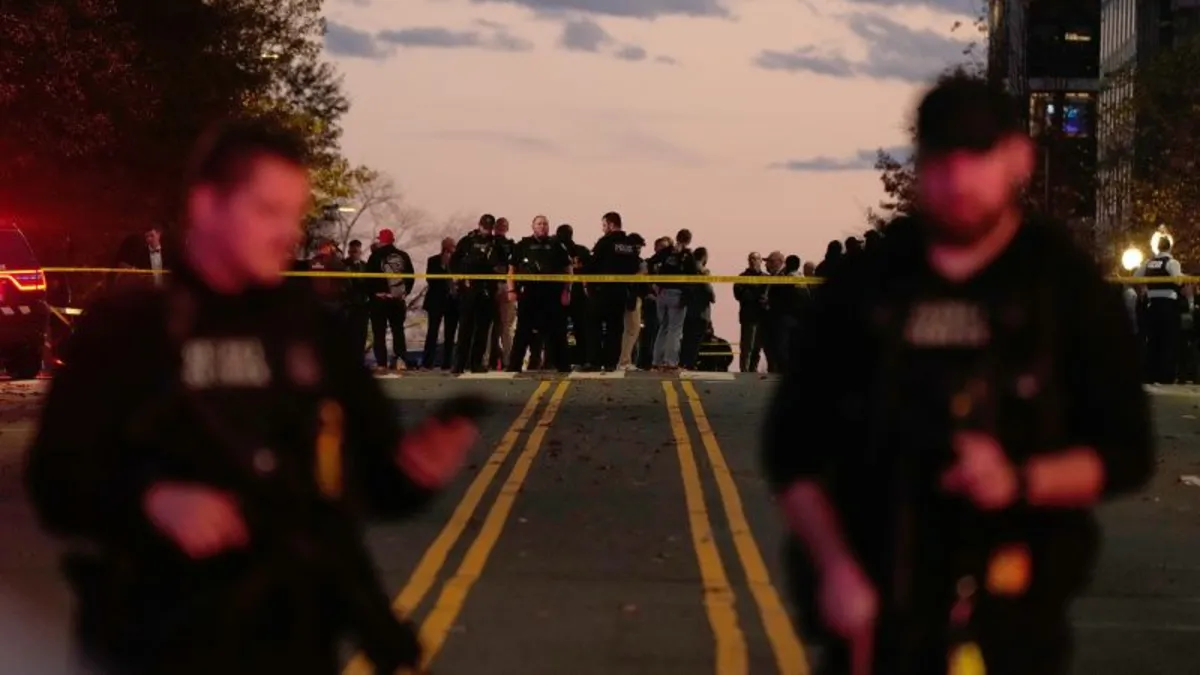
On the day before Thanksgiving, a tragic shooting incident occurred near the White House, leaving two West Virginia National Guardsmen in critical condition. The attack has ignited a fierce debate surrounding President Donald Trump’s immigration policies and their implications for national security. The gunman, identified as Rahmanullah Lakanwal, is an Afghan national who arrived in the United States in 2021 under a program initiated by the Biden administration following the military withdrawal from Afghanistan.
The shooting unfolded around 2:15 p.m. in Farragut Square, a bustling area frequented by tourists and located near a major transit center and the White House. During a routine patrol, the two Guardsmen were approached by Lakanwal, who brandished a firearm and opened fire. According to Executive Assistant Chief Jeffery Carroll of the Metropolitan Police Department, the Guardsmen managed to subdue Lakanwal after a brief confrontation, resulting in his arrest. Emergency services swiftly responded to the scene to provide medical assistance to both the Guardsmen and the suspect, who were subsequently transported to local hospitals.
Eyewitness accounts describe a chaotic scene, with one witness, Patrick, noting that he heard “thick gunshots” as he approached the area. He observed shattered glass and saw individuals performing CPR on one of the injured Guardsmen. The harrowing details of the incident have prompted a strong response from law enforcement and national leaders alike.
Rahmanullah Lakanwal arrived in the U.S. on September 8, 2021, as part of Operation Allies Welcome, a program established to assist vulnerable Afghans following the Taliban’s takeover of Afghanistan. Over 190,000 Afghans have resettled in the U.S. through this initiative and its successor, Enduring Welcome. Most individuals admitted under Operation Allies Welcome were granted temporary status for two years, with a significant portion qualifying for Special Immigrant Visas (SIVs) due to their association with U.S. military efforts.
Despite claims of insufficient vetting procedures, the Department of Homeland Security asserts that Afghan refugees underwent thorough background checks before admission. Lakanwal had applied for asylum in 2024 and was granted it the following year during the Trump administration, raising questions about his background and the vetting process.
The shooting has sparked intense political discourse, with President Trump labeling the incident an “act of terror” and calling for a reevaluation of all Afghan nationals who entered the U.S. under President Biden’s administration. He criticized the current immigration policies, claiming that they have allowed millions of “unknown and unvetted foreigners” to enter the country, which he argues poses a grave risk to national security.
Following the attack, Trump also requested the deployment of 500 additional National Guard troops to Washington, D.C. This request comes amid ongoing legal disputes regarding the legality of the National Guard’s presence in the capital. Furthermore, after Trump’s address, U.S. Citizenship and Immigration Services announced a halt to processing immigration cases for Afghan immigrants pending a review of security and vetting measures.
This tragic event underscores the ongoing complexities surrounding immigration policy and national security in the United States. As the investigation continues and more details emerge, the implications of this shooting will likely resonate through political and social discourse, raising questions about the effectiveness of current vetting processes for immigrants.